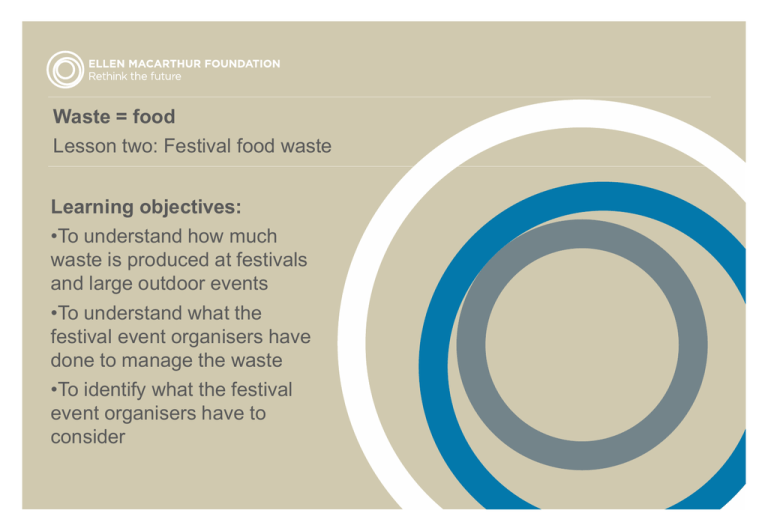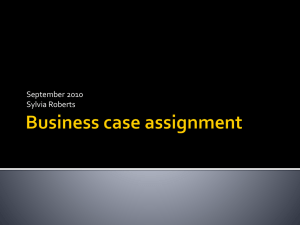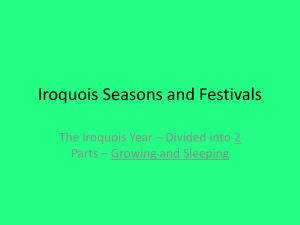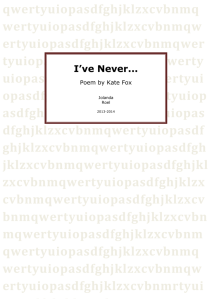Act.2.L2.Festival food waste
advertisement

Waste = food Lesson two: Festival food waste Learning objectives: •To understand how much waste is produced at festivals and large outdoor events •To understand what the festival event organisers have done to manage the waste •To identify what the festival event organisers have to consider Festival research • Think of as many different festivals as you can • Which are the main music festivals? • Are there festivals in your area? • Think local, national, global What to think about… What do festival organisers need to consider when putting on a festival? Case study: Glastonbury music festival • The festival employs a team of 1,200 volunteers to sort through up to 2,000 tonnes of rubbish generated during the festival • Collecting and sorting all the cans, plates, cups, plastics and food waste left by the 137,000 people can take up to a month • The festival organisers hope that more than 50% of all rubbish will be recycled – including 230 tonnes of compostable food and biodegradable plates, cups and cutlery • All the caterers at Glastonbury have to use compostable food packaging Case study: Glastonbury music festival • Some 150,000 people attend the festival over three days • Compostable food packaging has been used since 2005 • The use of compostable tent pegs is also promoted • The festival’s slogan is: Love the farm. Leave no trace. Case study: Beverley folk festival Beverley Folk Festival is a small, two-day event set in the grounds of a leisure centre in a large market town in East Yorkshire. There are camping and catering facilities. Your ideas • Complete the worksheet • Try to think of a large range of festivals, from poetry to food! Over to you… Produce a case study on a festival of your choice Find out… – How many people attend? – Is there camping/catering on site? – How does the festival manage waste from food packaging? – How do the organisers deal with the clean up operation?







